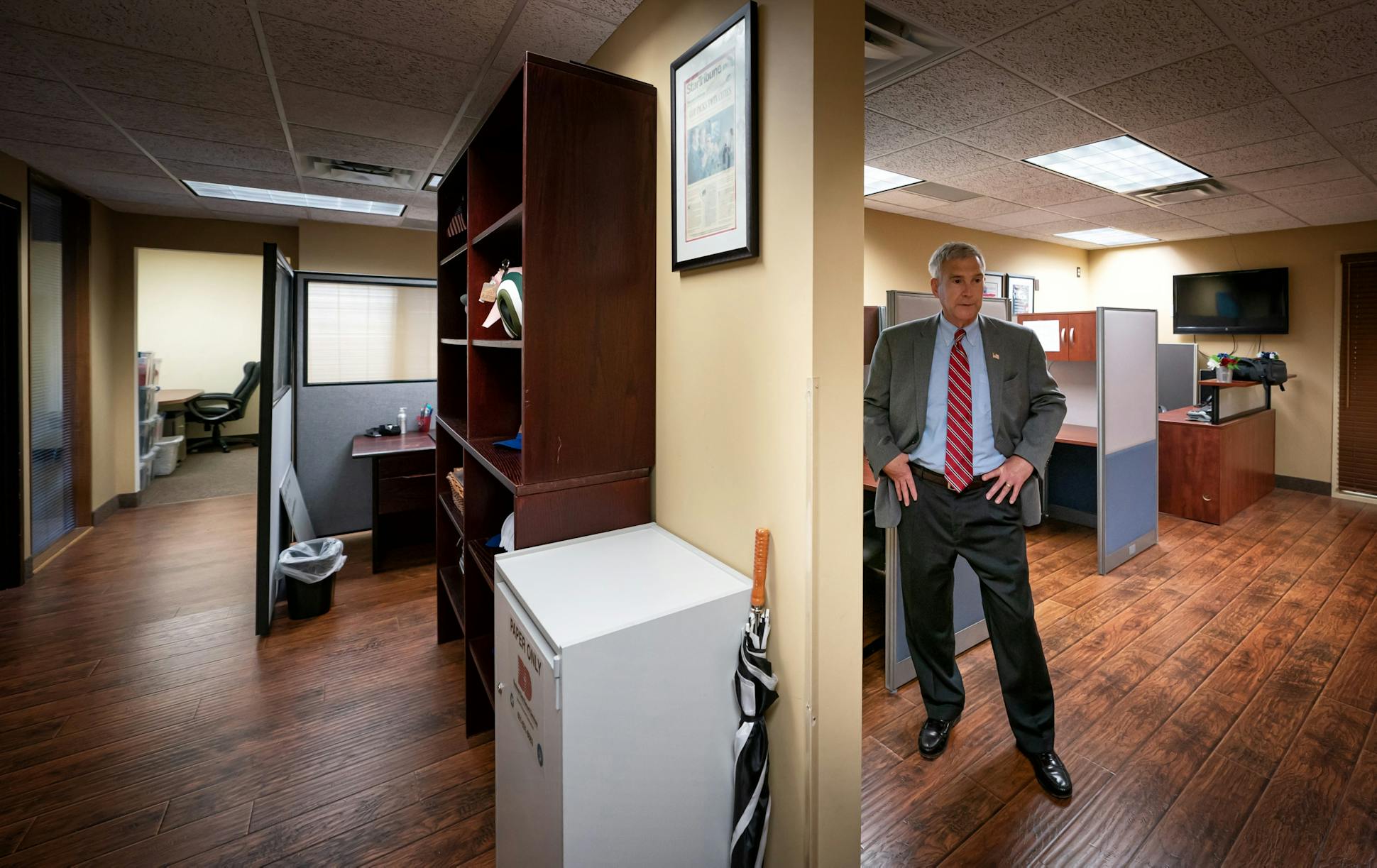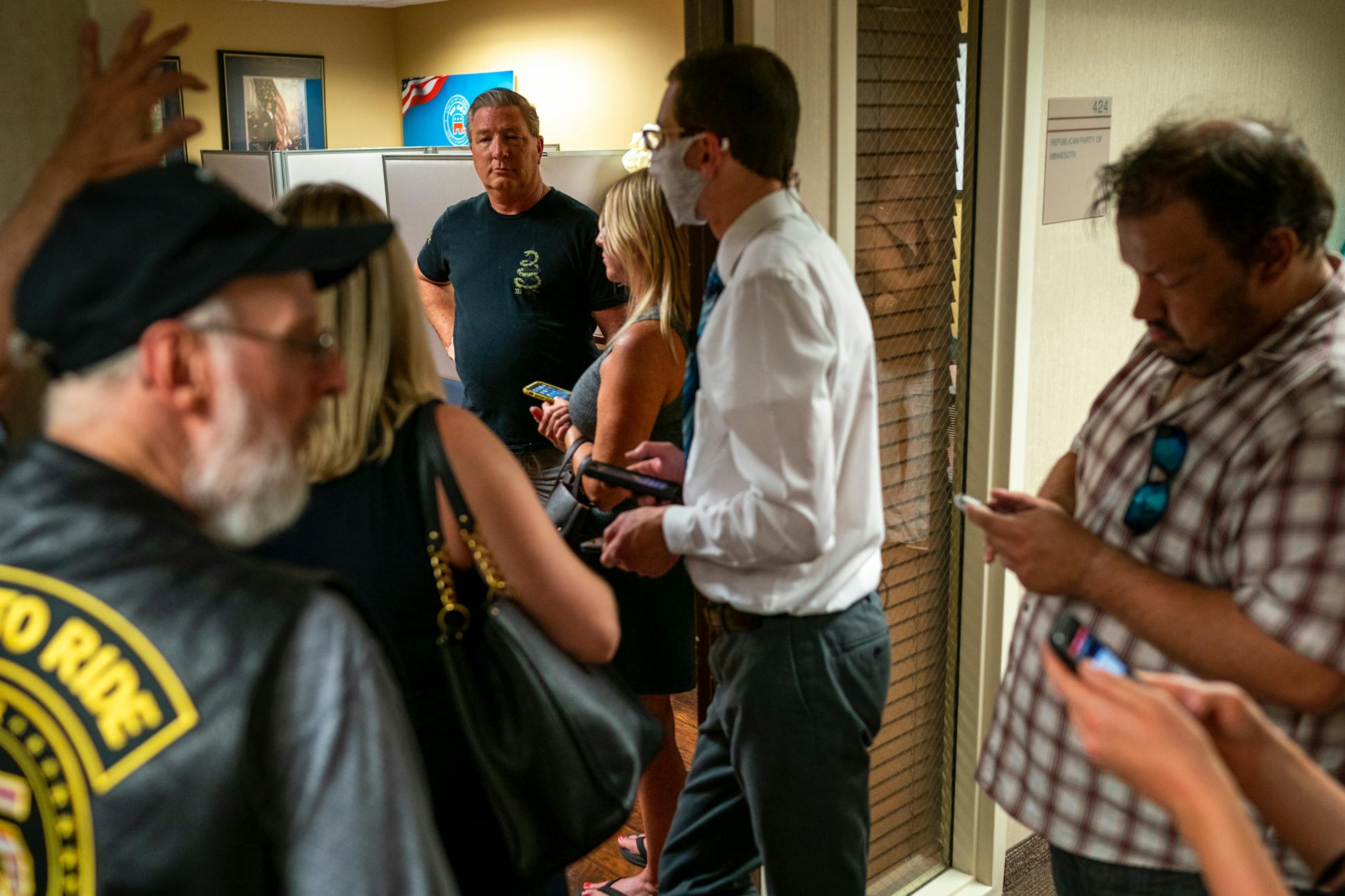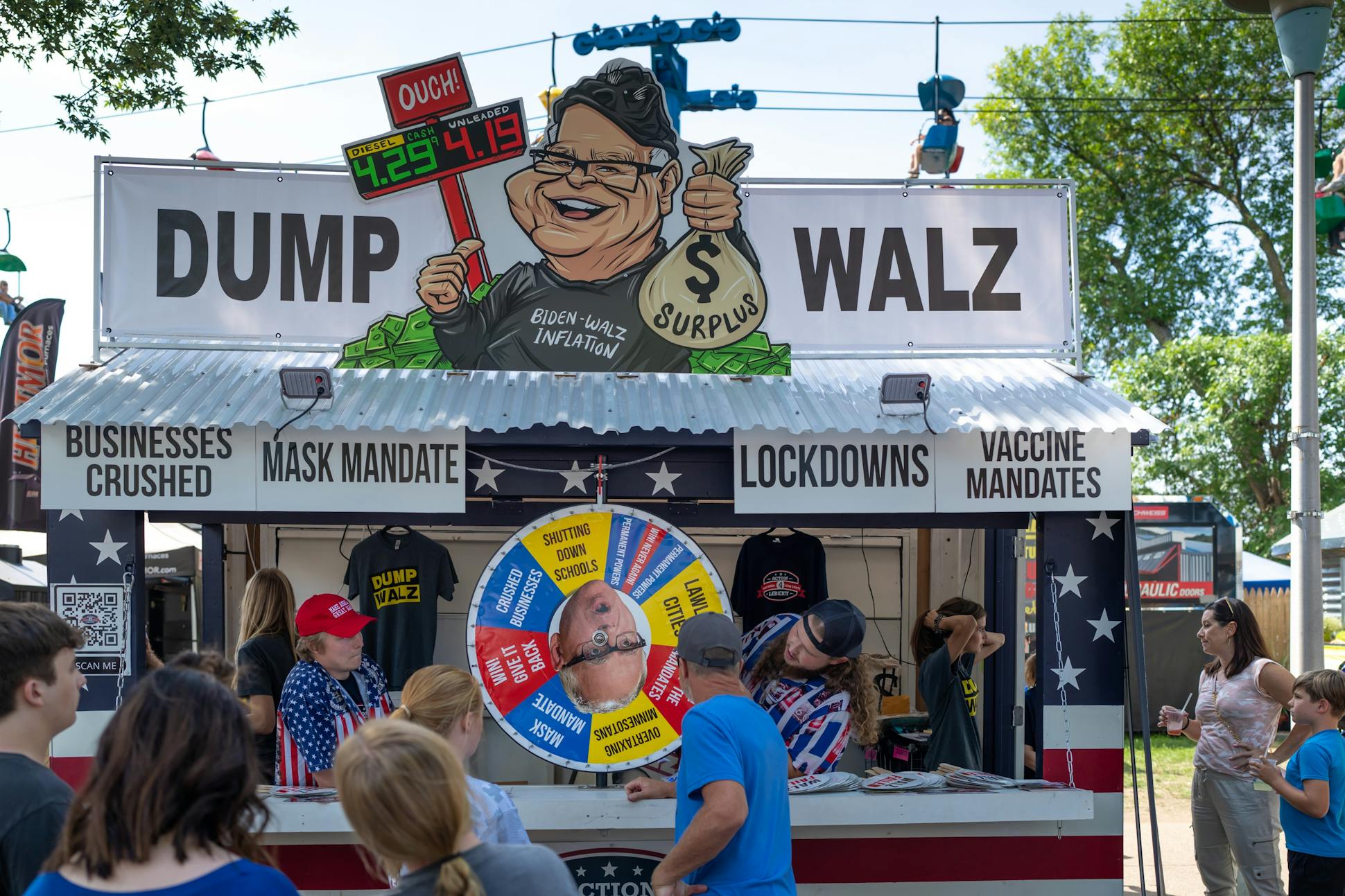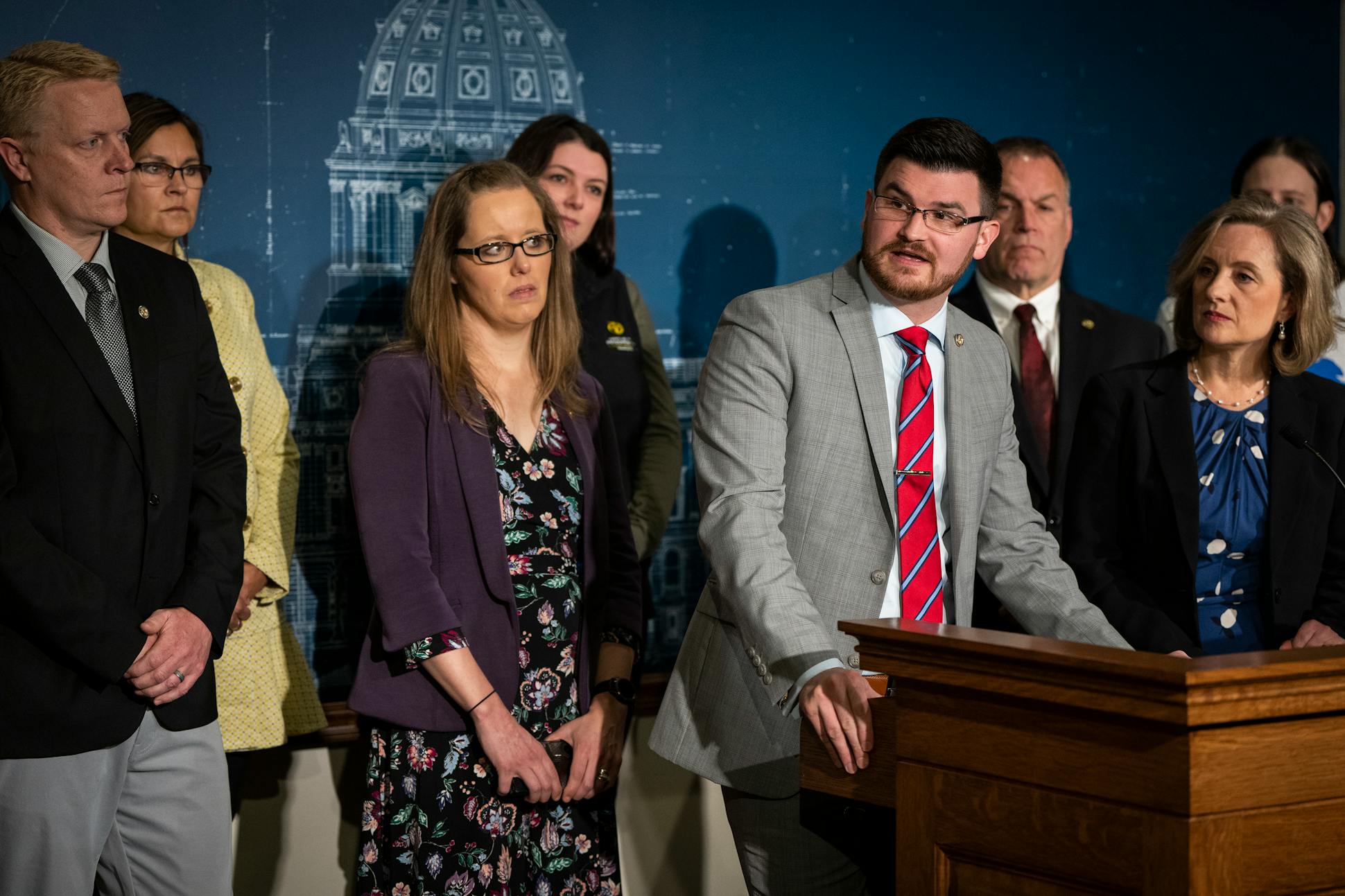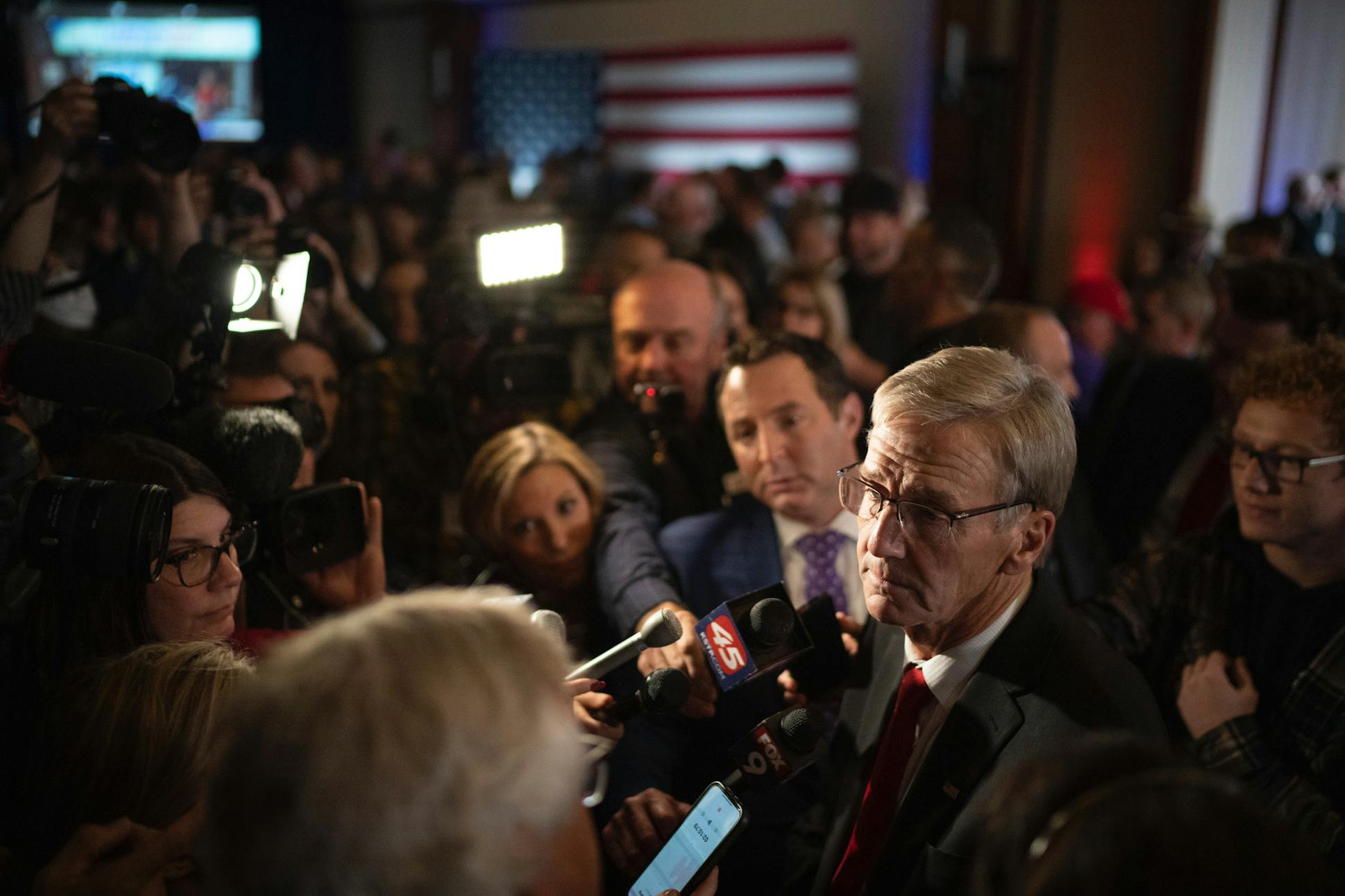With their relevance on the line, can Minnesota Republicans stop fighting each other?
Even when control of the Legislature was at stake, Minnesota Republicans could not stop fighting each other.
In a critical east-metro state Senate race, GOP voters chose anti-establishment conservative Tom Dippel to represent them over more moderate Republican Tony Jurgens. Stung by his primary election loss, Jurgens did the unthinkable: He endorsed Dippel's Democratic opponent, Judy Seeberger, who went on to defeat the Republican in the 2022 general election by just a few hundred votes.
That race gave Democrats a one-seat majority in the Senate and full control of state government, which the DFL used last year to pass a slate of progressive policies and the largest state budget in history.
Some Republicans blamed Jurgens' unprecedented endorsement for Dippel's loss, while others said GOP activists shouldn't have backed a hardline conservative in a suburban swing district. David Hann, chairman of the Republican Party of Minnesota, came to a different conclusion: The bitter intraparty feud turned some voters off.
"It did, no doubt, drive some Republicans to say, 'Ok, I'm done. I'm not going to vote at all,'" Hann said in a recent interview.
Seeking to win back the state House this November, Minnesota Republicans are working to unite their factions and end the civil war within the party. But it's unclear if such unity can be achieved in today's GOP, where right-wing activists galvanized by Donald Trump's presidency are trying to seize power from veteran Republicans they say aren't conservative enough.
Activists involved with their county Republican chapters are increasingly challenging state GOP leaders, and anti-establishment groups continue to encourage intraparty battles.
In December, a contingent of state GOP activists unsuccessfully attempted to remove Hann as the party's leader with no specific successor in mind. They cited U.S. House Republicans' unprecedented removal of Speaker Kevin McCarthy as their inspiration.
"A very small but vocal group think that they should, by chaos or by deception, take over portions of the party," said former GOP state Sen. David Osmek, who was president of the Minnesota Senate in 2022.
After repeated election losses, Minnesota DFL chairman Ken Martin said he's surprised state Republicans are still squabbling amongst themselves.
"I would have thought by now that people in that party would realize that this continued chaos and dysfunction does not help them win elections," said Martin, who's had his own disputes with the DFL's left wing. "It's the old adage that it's going to take someone hitting rock bottom before they actually realize they have to do something different."
Seeking unity
After Minnesota Republicans lost control of the Legislature and every statewide office in 2022, Hann set out to bring conservatives together.
For nearly the past year, Hann said he's met weekly with the campaign arms of the House and Senate GOP caucuses and monthly with other interest groups in the Republican orbit, attempting to coordinate with them under the limits of the law.
"We talk about: what are we focused on, let's not duplicate efforts, let's work together where we can, let's try to use the monies that we have effectively," Hann said.
Minnesota Democrats have done this for years, uniting their coalition of supporters behind common goals. But within the Republican Party, Hann said there hadn't been enough desire to do so until Democrats took over state government and passed a progressive agenda that included abortion rights protections, legal marijuana and stricter gun laws.
"We made a deliberate choice to say, 'Let's try to get this to work better,'" Hann said.
Outside spending groups have shown renewed interest in working together to ensure resources are targeted at the races that give Republicans the best chance of winning a legislative majority, said John Rouleau, executive director of the Minnesota Jobs Coalition, which spends money in legislative races.
"We know that we're going to get outspent," Rouleau said, noting that Democrats consistently raise more money than Republicans in Minnesota. "We need to make sure we're spending every dollar as wisely as we can."
Even the highly conservative Freedom Club, which has poured millions of dollars into state elections over the past decade and previously funded some insurgent GOP primary candidates, is emphasizing unity.
"After seeing far-left policies that have been implemented and their negative impact, Conservatives in Minnesota have become much more united today," Freedom Club executive director Alex Kharam said in an email.
Republicans must gain four seats this November to win back control of the Minnesota House and end the DFL's trifecta control of state government.
Attacks from within
As they hone their campaign-trail attacks against Democrats, Republicans are dealing with internal fights that could hurt the party's image and electoral chances.
The Minnesota GOP and its former chairwoman, Jennifer Carnahan, recently settled a bitter and expensive legal feud over allegations of disparagement.
Hann and Carnahan have publicly attacked each other since then, trading blame for the state party's financial problems. The Minnesota GOP had nearly $460,000 in debt as of Nov. 30, according to its latest federal campaign finance report.
The state party is still in the midst of a lawsuit against party activist Edwin Hahn, who was removed as chair of the Clay County Republicans in 2020 but then convened an alternate group that declared him its leader.
The party sued Hahn, alleging he is unlawfully misrepresenting himself as a local GOP leader. Hahn countered that the Minnesota GOP attacks outsiders "as radical or dangerous, when in reality they're using false rhetoric to silence ideas that are less centrist and more conservative."
The Minnesota GOP has had similar battles with other local Republican Party units. Members of the Mille Lacs County GOP and the Crow Wing County GOP were behind the recent effort to remove Hann as the state Republican Party's chairman.
Republicans in Kittson County have accused Hann of dissolving their organization over differences on the direction of the party.
"We have a State Party Chair that says we are not the Party of Trump, when Trump is the Republican leading candidate," said Amanda Hughes, former chair of the Kittson County GOP group, in an email. "He denies any election fraud, as we see problematic cases coming up time and time again."
Claims of widespread fraud in the 2020 election have been repeatedly disproven, with reviews in state after state upholding Biden's win over Trump.
Hann refuted Hughes' claims that the state party dissolved the Kittson County GOP. He said it was not established to begin with because Kittson County Republicans didn't properly register with the Minnesota Campaign Finance Board, and that the state party simply re-established it.
"We didn't do anything to Kittson County. They did this to themselves," said Hann, who accused Hughes of having "a very tenuous relationship with what the facts are."
Hughes said some Republican activists are walking away from the party and refusing "to walk in parades, make calls, do lit drops, or talk politics anymore."
Other frustrated Republicans have urged activists to run for office and take matters into their own hands.
More primary battles?
The far-right group Action 4 Liberty has been a persistent foe of the Republican establishment in Minnesota, encouraging primary challenges against incumbent GOP lawmakers it's deemed RINOs — short for "Republicans in name only."
In 2022, Action 4 Liberty backed Dippel in his primary race against Jurgens as well as several other hardline candidates. The group's president, Jake Duesenberg, suggested that Action 4 Liberty may once again push for intraparty battles this year.
"I'd say it is a target rich environment for folks who want better representatives who will actually fight for their liberty," Duesenberg said in an email.
Establishment-aligned Republicans have been highly critical of Action 4 Liberty. Hann called it a "fringy" group and Osmek accused Action 4 Liberty of seeking "to create chaos within the Republican Party."
"If they worked half as hard to try and help candidates, maybe we'd actually be in the majority in one of the chambers," said Osmek, the former Minnesota Senate president.
In response, Duesenberg called both Hann and Osmek a "failure" and said neither of them know how to win.
"The Republican establishment is short-sighted and choose to spend their resources fighting against liberty, rather than for it, which has cost them political power," Duesenberg said. "Maybe once they wise up and realize it's better politically to fight for liberty rather than against it, their fortunes will change."
A pivotal moment
Losing all power in state politics has motivated some Republicans to put past grudges aside.
State Rep. Nolan West, a fourth-term Republican from Blaine, sought charges against Action 4 Liberty after he was physically forced out of a meeting the group hosted in his district in 2022. Now, he said, it's time to "bury the hatchet."
"The goal is to hold the coalition together," West said. "The Democrats don't always get along, but they organize and come together to work toward a shared goal. We need to get into that same galaxy."
The party's warring factions must realize that "one side cannot win without the other side," said Republican political operative Jennifer DeJournett.
"Both sides seem to say, 'If only the other side would get out of our way, we could win,'" DeJournett said. "And what they're failing to understand is, politics is a game of addition, never subtraction."
Republicans risk being shut out of power at the State Capitol for four years straight if they do not coalesce before this November's elections. The last time Democrats controlled Minnesota's executive and legislative branches for that long was in the late 1980s.
Former GOP Gov. Tim Pawlenty said Republicans in Minnesota need to back candidates with broad political appeal considering the state has historically leaned Democrat. They also must stop alienating each other for holding different views, he said.
"There aren't enough Republicans here for factions to essentially toss people overboard or make them feel like there's no place for them in our party. We need to welcome every possible Republican voter — even if we disagree with them on some issues," said Pawlenty, the last Republican to win a statewide election in Minnesota in 2006.
Former GOP candidate for governor Scott Jensen said he felt pressured by party activists to take hardline stances on issues such as abortion during his 2022 campaign. Much of that pressure came in the months leading up to the party's state convention, where the Republican endorsement would be at stake, he said.
Many Republicans select a single issue and use it as a litmus test for whether they'll support a candidate, making it difficult for candidates to seek broader electoral appeal, Jensen said.
"I was encouraged to sort of talk the talk of the rhetoric that's necessary to, so to speak, check the box," Jensen said. "Arguably, that was one of my biggest mistakes."
Republicans must recognize the consequences of continuing down this path, he said.
"How many times do we have to experience the lesson before it becomes a motivating force for change?" Jensen said. "If you lose over and over again, quit putting your head in the sand."
